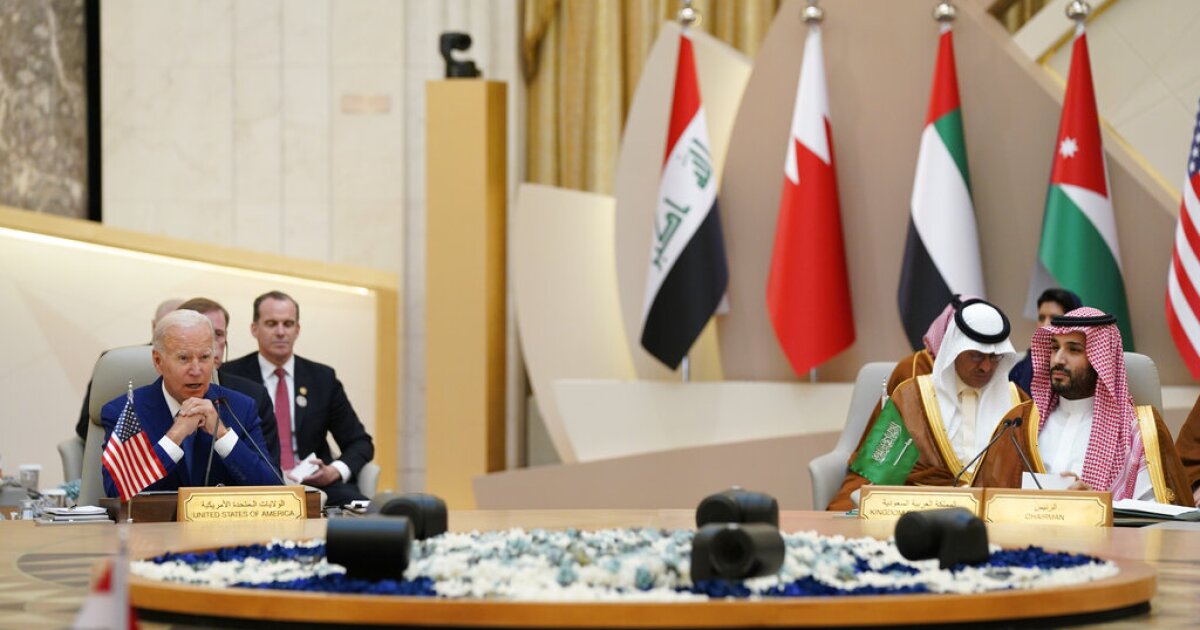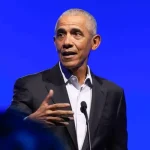

The White House has worked to temper expectations ahead of a highly anticipated OPEC+ meeting, the first since the group moved to slash output ahead of the midterm elections, placing the Biden administration at the center of a public spat with Saudi Arabia.
Cartel members will meet virtually on Sunday against the backdrop of potentially disruptive new oil sanctions on Russian exports, a move intended to drive down President Vladimir Putin’s oil revenue amid the war in Ukraine. Russia is one of nearly a dozen OPEC+ oil-producing countries led by Saudi Arabia that meet regularly to set production quotas.
BILL TO STOP CHINESE DRONES STALLED BY DEMANDS FOR US INTELLIGENCE CARVE-OUT
In October, OPEC+ said it would cut production by 2 million barrels, stoking fears that the move could cause oil prices to rocket upward. U.S.-Saudi tensions spilled into public view following the announcement, with President Joe Biden vowing “consequences” against the kingdom and promising a review of the two countries’ decadeslong security partnership.
The outburst from Biden and top allies in Congress seemed to take Saudi Arabia by surprise. Soon after, Biden press secretary Karine Jean-Pierre suggested Saudi Arabia was taking steps to shore up the White House’s approval, including with a pledge of support to Ukraine.
“We’re watching to see what Saudi Arabia does over the coming weeks,” Jean-Pierre said.
Privately, aides worked to smooth ties.
Meanwhile, the White House has downplayed the review Biden promised, saying that the president continues to support a “fresh look” at the relationship while declining to provide a timeline for this. Officials have indicated there is unlikely to be a formal document issued, which could upset the delicate effort to bring the two countries into alignment.
“The Saudis don’t see the energy situation in isolation,” said Victoria Coates, deputy national security adviser for Middle Eastern and North African affairs in the Trump administration and a senior fellow of international relations and national security at the Heritage Foundation.
In a controversial decision last month, the administration moved to shield Crown Prince Mohammed bin Salman in a legal case over the murder of journalist Jamal Khashoggi. Saudi officials had requested the administration’s support in the case, according to a report by the Wall Street Journal in March.
Soon after, the kingdom denied reports that it was backtracking on planned production cuts.
Amid fears of an economic downturn, that outcome appears unlikely. Instead, uncertainty over future consumption by major crude importers suggests a case for sticking to the current target, said Bob McNally, an energy analyst at the Rapidan Energy Group.
CLICK HERE TO READ MORE FROM THE WASHINGTON EXAMINER
“While another cut cannot be ruled out due to concerns that COVID lockdowns in China will hammer oil consumption, odds favor keeping quotas steady on Sunday given enormous uncertainties, including the impact of the looming EU embargo on Russian oil, insurance and services sanctions, and price cap,” said McNally, a former energy adviser to President George W. Bush.
The decision by the U.S. and its partners to cap Russian oil prices at $60 follows months of discussion over how to cut into Russia’s war chest.






